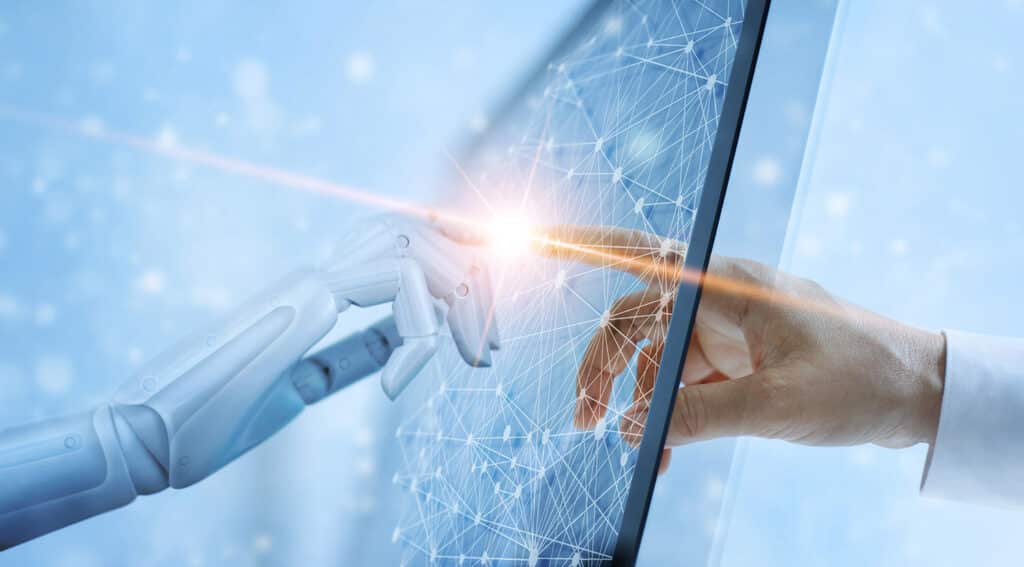AI Hiring tools and software
Recruiting tools are automated programs that assist recruiters and hiring managers in finding qualified candidates more quickly than traditional sourcing methods.
The best AI recruiting tools enable HR and talent development teams to boost up their efforts by eliminating repetitive tasks and allowing recruiting teams to focus on the most strategic aspects of their recruitment process.
For sourcing qualified candidates, the technology behind it employs artificial intelligence, machine learning, deep talent analytics, and natural language processing.
Hiring software, platforms, and websites are examples of hiring tools. They can significantly reduce the number of time recruiters spend searching for qualified candidates by automating steps in the recruitment process. AI hiring software uses automation to assist businesses in sourcing candidates, developing process workflows, and screening resumes.
Pros and Cons
However, are the advantages of using this technology worth the potential costs? Gladus highlights the following pros and cons.
The Pros
Sourcing. AI has the ability to decrease the time spent on finding and recruiting excellent potential candidates. Instead of having a person spend hours posting on job boards or attending career fairs. By using AI candidate sourcing software, companies can easily select the perfect candidate who fits in well with other employees and can skilfully complete the required job tasks and responsibilities. This can assist organizations in bringing in candidates in a timely and efficient manner.
Screening. One of the most significant advantages of AI in hiring is its ability to sort through candidate resumes for you. Because AI can analyze information so easily, it can screen hundreds of applications in a couple of minutes, looking for specific past experience or other qualities you may be looking for in a candidate, and bringing quality candidates to your attention. This significantly reduces the time spent evaluating applications, allowing managers to spend their time elsewhere.
Communication. AI can also help you optimize your candidate communication. Chatbots have gained popularity in recent years, particularly in customer service. HR professionals are now using it for candidate engagement. AI can serve as a representative who candidates can contact at any time of day or night with questions. It can also contact qualified candidates to gather additional information and schedule an interview. Personality AI, a new type of AI, can even offer advice on how to communicate effectively with each candidate based on their unique personality, which helps you build important connections and hire the best candidates you can find.
The Cons
Overlooking Candidates. As useful as AI’s ability to find appropriate candidates can be, it also has the potential to dismiss, deprioritize, or even reject excellent candidates. Because AI tends to focus solely on past experience or other relevant information points, it may overlook someone who is well-suited to a role despite lacking relevant experience.
Learned Bias. Contrary to popular opinion, AI has the potential to be biased. Though properly developed AI can assist in the prevention of human biases, the technology’s need to learn through patterns can actually pick up on past biases such as age, gender, and even the candidate’s alma mater. While some businesses may fail to account for these biases, this problem is easily solved when software developers take the necessary steps to eliminate these patterns of human error.
Being Impersonal. AI does not always connect with customers. With AI-powered chatbots, the hiring process can feel less personal for both the manager and the candidate. Though it can make work easier and more efficient, it can also contribute to a loss of effective communication. Managers may become more disengaged from the process, and candidates may be less persuaded by generic messaging.
Finally, Gladus recommends you to keep an eye on technological advancements. This is a relatively new field, and many of the flaws in innovative recruiting AI are being addressed, so it may become a more beneficial contributor to your recruitment process in the future.
Summary
When it comes to employment, artificial intelligence (AI) includes using technology to automate some steps. Thanks to advancements like the development of machine learning and the expansion of big data, artificial intelligence (AI) may now be used to recruit, evaluate, and predict the success of applicants. Artificial intelligence (AI) in hiring is supported by claims that it reduces bias, assists in finding qualified candidates, and frees up time for other tasks for human resource professionals, while it is opposed by those who fear that AI will lead to job losses and will perpetuate workplace inequalities.
AI hiring has sped up the hiring process considerably, dramatically reducing costs. Recruiters no longer need to manually scan each candidate’s information; instead, they only need to upload and process the resumes. Their important time is greatly reduced by it. This time-saving feature necessitates a solid setup of the automated tool. In order to save time in the long run, make sure everything is set up correctly and according to your standards.
And major IT businesses are no longer the only ones who can use AI. A research by the HR Research Institute found that 96% of HR managers think AI has a tremendous potential to assist in the recruitment of the best people and that 55% expect AI will become a regular component of the hiring process over the next five years.


